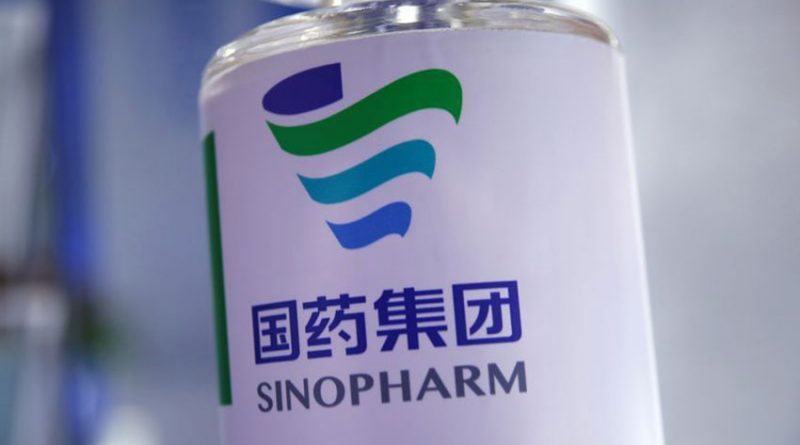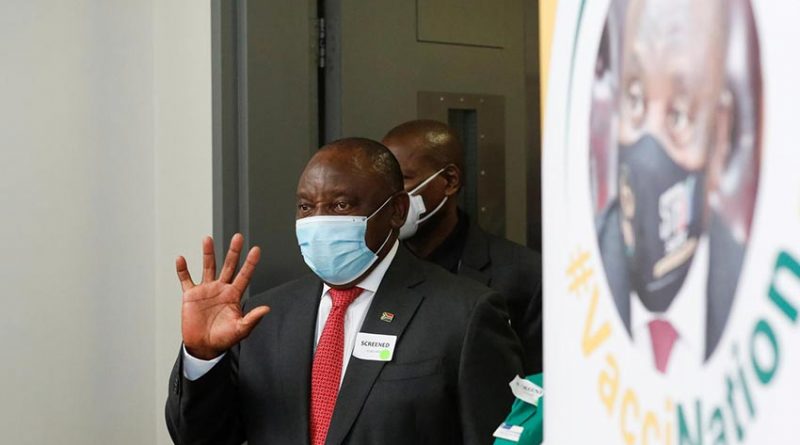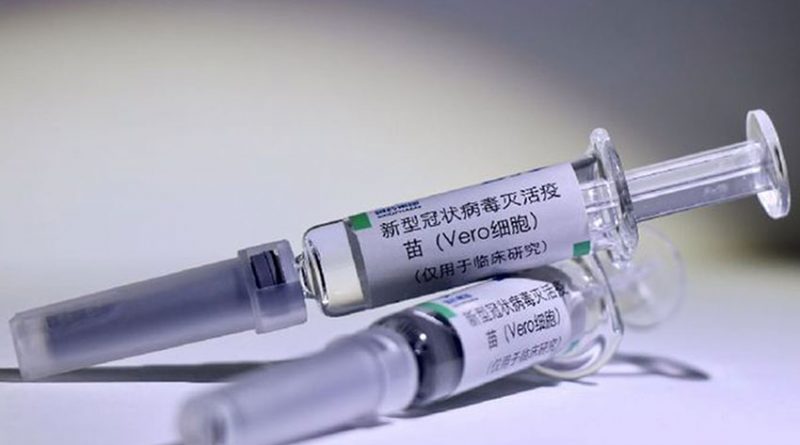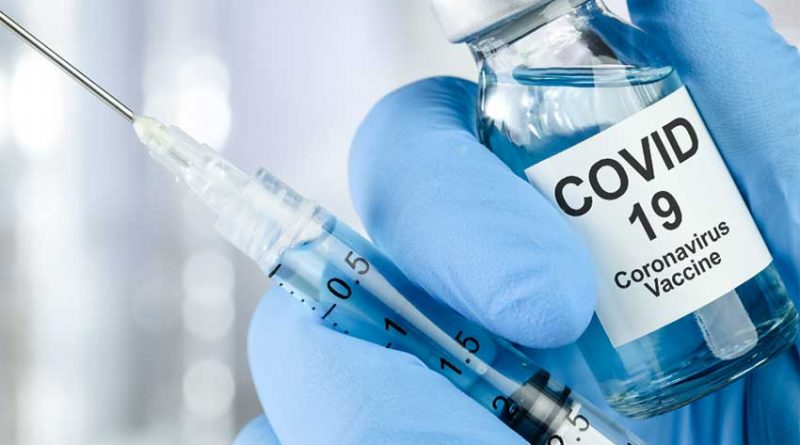SENEGAL has taken delivery of its first COVID-19 vaccines, after paying for 200 000 doses from China’s Sinopharm.
Like other African countries that have struggled to procure vaccines, Senegal is still waiting for disbursements through African Union and World Health Organization-backed (WHO) programmes.
In the meantime, some have turned to purchases or donations from China. Despite a relatively late start compared to Western producers, China is ramping up efforts to distribute its vaccines in Africa and elsewhere, some as direct aid.
President Macky Sall will be at Dakar’s airport for the arrival of the first doses from China in the afternoon, his spokesman Ousmane Ba said.
It was not clear how many doses would be in the first shipment or when vaccinations might start.
As a lower-middle-income country, Senegal is eligible for around 1.3 million doses for free in the first wave of disbursement from the WHO’s COVAX programme. But shipments are not expected to start until late February and most will arrive in March, the WHO said on Tuesday.
Last week Senegal said it had paid a little over 2 billion CFA francs ($3.71 million) for the Sinopharm doses to kickstart its vaccination campaign this month.
It aims to inoculate around 90% of a targeted 3.5 million people, including health workers and high-risk individuals between the ages of 19 and 60 years old, by the end of 2021.
It has so far recorded over 31,000 cases and 769 deaths from COVID-19.
Source – Thomson Reuters Foundation
SOUTH Africa launched its COVID-19 vaccination drive yesterday, battling to tame a more infectious variant of the coronavirus with a roll-out of the Johnson & Johnson shot for the first time outside a major clinical trial.
“I actually feel blessed, you know, after all our hard work and effort in the first and second wave that we finally have another layer of protection, another tool…in the fight against COVID-19,” said emergency physician Sa’ad Lahri, one of the first South Africans to be vaccinated.
“I am still Zoliswa, no side-effects,” said nurse Zoliswa Gidi-Dyosi, who was also inoculated at Cape Town’s Khayelitsha District Hospital along with President Cyril Ramaphosa and Health Minister Zweli Mkhize.
South Africa has recorded almost half of the COVID-19 deaths and over a third of confirmed infections in all of Africa, but has lagged in wealthier Western nations in launching its immunisation campaign.

The government plans to vaccinate 40 million people or two-thirds of the population in Africa’s most industrialised economy. But it suffered a setback when a small local trial showed AstraZeneca’s vaccine offered minimal protection against mild to moderate illness from the 501Y.V2 virus variant dominant in the country.
Authorities have paused plans to use the AstraZeneca vaccine and are considering selling or swapping doses they have ordered.
Instead, the J&J vaccine is being deployed as part of a research study targeting up to 500,000 healthcare workers. The U.S. company has been submitting data to South African medicines regulator SAHPRA to secure registration for a larger-scale roll-out.
Ramaphosa called the start of immunisations “a new era” and said he was confident the country would meet its vaccination targets. “I’d like to say to all the doomsayers: let’s all have hope and faith in our system, our health workers, and let’s give them an opportunity to do what they do best.”
South Africa is one of the first African nations, along with Rwanda, Morocco and Egypt, to vaccinate against COVID-19.
Zimbabwe will start inoculations on Thursday, while Senegal is expecting its first vaccine delivery on Wednesday.
ASTRAZENECA REVELATION
Ramaphosa’s government has been under pressure to get the first shots in arms quickly after the revelation that AstraZeneca’s vaccine had greatly reduced efficacy against the 501Y.V2 variant first identified late last year.
Officials already faced deep scepticism among some South Africans about COVID-19 vaccines.
Health Minister Mkhize said it was an emotional moment when the plane carrying the first 80,000 J&J doses touched down late on Tuesday, praising doctors and nurses as “frontline warriors”.
He said the government had a long discussion with AstraZeneca’s leadership about possibly conducting another local study to reduce the levels of uncertainty about the British firm’s vaccine.
AstraZeneca declined to comment when asked about that discussion. It said previously that it believes its vaccine protects against severe COVID-19 and that it has started adopting it against the 501Y.V2 variant.
The next vaccine to arrive in South Africa will be from Pfizer, which will supply around 500,000 doses initially and about 7 million doses by June, Mkhize said.

Source – Thomson Reuters Foundation
MOROCCO received the second batch of 500,000 doses of China’s Sinopharm coronavirus vaccine yesterday, part of its national vaccination campaign, health ministry sources said.
The 1 million Sinopharm doses add to 6 million doses of the AstraZeneca vaccine manufactured by India’s Serum Institute which Morocco has received so far.
Morocco has ordered 66 million doses of the vaccines, which require two doses per person, under plans to inoculate 80% of its 36 million-strong population for free.
By Monday, Morocco had Africa’s largest vaccinated population of 1.7 million people. The number of infections had reached 478,595, including 8,491 deaths.
Despite a drop in daily registered cases, Morocco extended a night curfew for two weeks starting on Tuesday to contain the spread of new coronavirus variants.
Source – Thomson Reuters Foundation
RWANDA has commenced COVID-19 vaccinations with limited supplies of vaccines acquired through unnamed international partners and said the programme had started with frontline healthcare workers.
The central African country has been battling a surge in infections of COVID-19 which forced the government to re-impose a lockdown last month in the capital Kigali.
Authorities banned the movement in and out of the city, except for essential services and for tourists.
In a tweet, Rwanda’s ministry of health said the country’s National Vaccination Program had begun “vaccinating high-risk groups, notably frontline healthcare staff, with WHO-approved COVID-19 vaccines acquired through international partnerships in limited quantities”.
The initial vaccination phase, the ministry said, will be followed by a wider roll-out with supplies secured via the World Health Organization’s COVAX scheme to facilitate vaccine access by poor and middle-income countries.
Additional supplies would also be secured via the African Union (AU) window. The AU has secured more than 600 million doses of COVID-19 vaccines for its member states. So far Rwanda has recorded about 17,000 cases of COVID-19 and 236 deaths.
Source - The African Mirror




